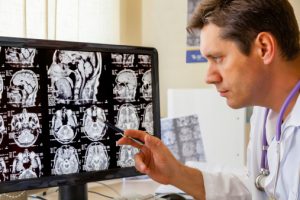
The team conducting the study was led by Professor Dr. Nikolai Axmacher from the Ruhr-Universität Bochum (RUB) and comprised of researchers from the University Hospital of Bonn as well as in Aachen and Birmingham. The details and results of their study are published in Current Biology.
The premise of the study is that in everyday life, people are very often faced with decision conflicts. More so, when they need to respond differently to a situation than they normally would under the same circumstances. Let’s take, for example, a common situation we often find ourselves in: traffic. When the lights turn green, a pedestrian waiting to cross the road would normally start walking; however, if a car comes speeding along at the same time, the pedestrian would immediately step back or stay still.
For the purposes of the experiment, the researchers used a less threatening option. Study participants were asked to listen to the words “high” and “low” which were randomly spoken in a high or low register. The participants then had to decide which word, irrespective of its meaning, was spoken in a high tone and which was spoken in a low tone.
The researchers noted that when the pitch of the word did not correspond to the definition of the word, a struggle was generated, and the participants would not be able to answer as quickly and would make more blunders.
Eliciting the conflicts was the first half of the study. The next step was to determine that the hippocampus is involved in conflict decisions. To do this the team used two different measurement methods.
First, Dr. Axmacher and his colleagues analyzed the brain activity in healthy participants with functional magnetic resonance imaging.
Second, the team used EEG electrodes implanted in the hippocampus of epilepsy patients for the purpose of surgery planning. This way the researchers could measure the activity in the hippocampus directly.
In both methods the researchers measured the same hippocampal activity when stimulated with conflicts.
The results of the study bring forth a lot of questions and interesting hypotheses. They confirm a completely new role for the hippocampus. However, the question of how this new role interacts with the original role – memory processes – remains unanswered. Dr. Axmacher wonders whether the memory system becomes more active if a conflict has been successfully resolved. Does this news role of the hippocampus have anything to do with the fact that the brain’s memory responds strongly to resolved conflicts but not to unsolved conflicts or standard situations? More studies will need to be conducted to gain a little more clarity regarding the newly discovered role of the hippocampus.
Sources:
http://aktuell.ruhr-uni-bochum.de/pm2015/pm00114.html.en